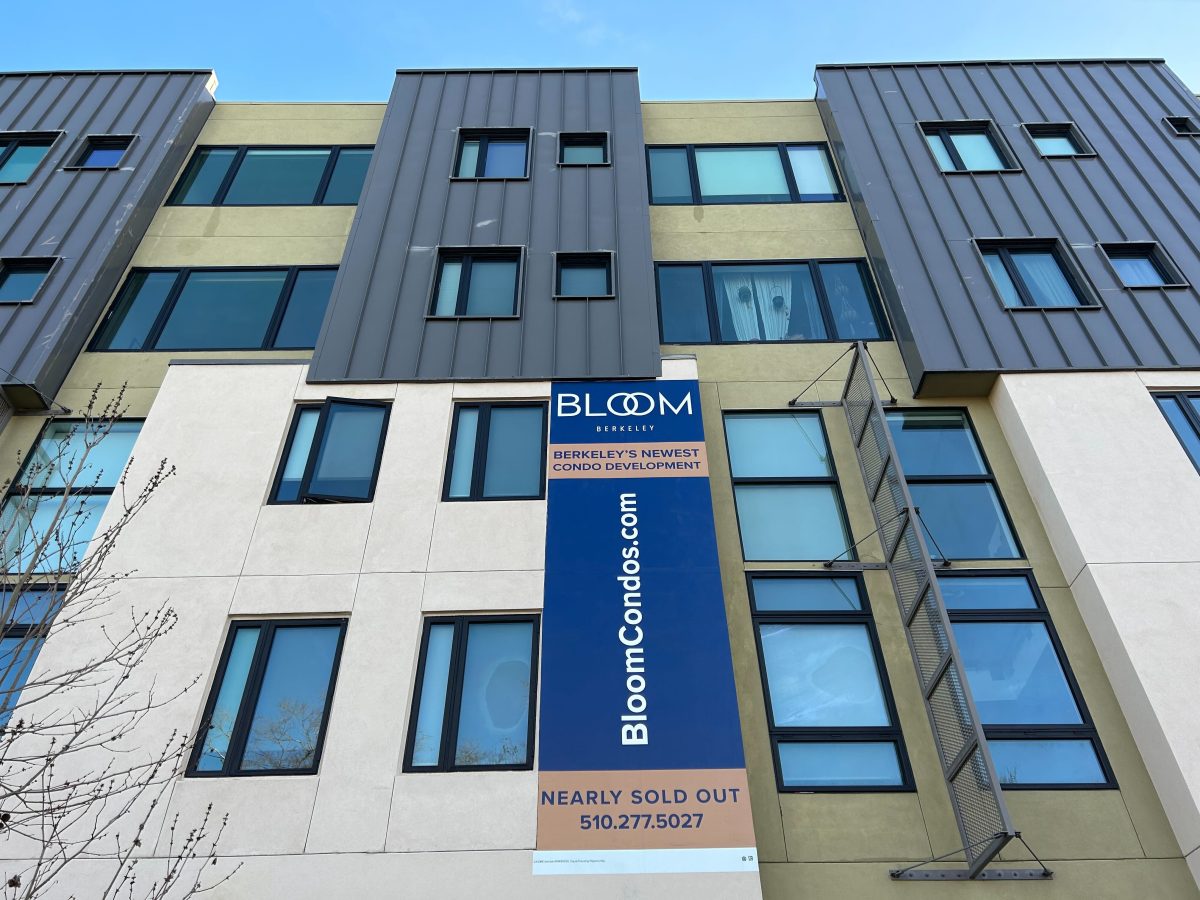
Almost all of the new apartments built in Berkeley over the past decade have something in common: They’re offered for rent, not for sale. Even as the city’s real estate market exploded and developers constructed dozens of new rental buildings, planning officials say only a handful of new condo projects have been built around Berkeley.
A key reason for that imbalance lies in the fee the city charges developers who don’t include affordable housing in their projects, which is much higher for condo buildings than rental ones.
But that’s changing — the City Council on Tuesday approved a slate of updates to Berkeley’s affordable housing requirements, which includes eliminating the difference between the fee charged for rental and ownership developments. Supporters hope the change will revive condo construction in Berkeley and provide more options for people to own a home.
“That fee shut down multi-family ownership housing in the hottest housing market in the history of Berkeley,” Planning Commission Chair Elisa Mikiten said. “It’s really great that it’s getting fixed.”
A developer who wants to build a housing project with at least five apartments in Berkeley is required to either set aside 20% of its units as affordable — meaning residents pay below market rate to rent or own them — or pay into the city’s Housing Trust Fund, where it can go toward future affordable housing developments.
That fee today is calculated based on the number of units in the proposed building. Berkeley charges rental projects $46,185 per apartment, while condos have a more complex formula based on the sale price of units in the building. Their fees typically wind up being higher and in some cases could top $80,000 per unit, according to research from Street Level Advisors, a firm Berkeley contracted to study updates to the fee program.
The council voted Tuesday to change how the affordable housing fee is calculated — going forward it will be the same for rental and ownership projects, and set based on the project’s size, not the number of units in the building.
The new fee is $56.25 per square foot of net residential floor area, meaning the total area of every apartment in the building. It will automatically increase each year based on California’s Construction Costs Index.
Planning Director Jordan Klein said it’s difficult to track the number of new condo projects that have been built in Berkeley since some developments switch from a rental to an ownership model during construction. But over the past 10 years, Klein said, city staff could identify four new condo buildings, two of which were less than five units.
While a Berkeley condo can hardly be considered cheap, with a median sale price of $800,000 in December according to Redfin, they’re still much less expensive than a house, where that figure was nearly $1.4 million.
By changing the fee, Councilmember Rashi Kesarwani said during Tuesday’s council meeting, “I hope we can have more condo opportunities for folks to downsize or get their first ownership opportunity.”
City planning staff said it’s difficult to determine how the new fee structure will affect the amount of money Berkeley raises from the affordable housing fee, though they estimated it will generate a “similar amount” of revenue to the current model. The new fee structure means certain rental projects — those with a lot of smaller units, such as studios — will wind up paying less, while those mainly made up of bigger apartments could pay more.
Developers have paid about $38 million into the fund since 2015.
The new structure is set to go into effect starting April 1; projects that have submitted a complete application before then will be subject to the prior rules.
Some key provisions of Berkeley’s affordable housing rules remain undecided following Tuesday’s meeting.
The City Council voted to continue exempting small projects — those with four or fewer units — from the requirements until 2025, as Berkeley conducts a study this year that will analyze whether subjecting them to the rules would hamper efforts to encourage duplexes, triplexes and fourplexes. That study is expected to also inform a decision on whether to increase the fee.
